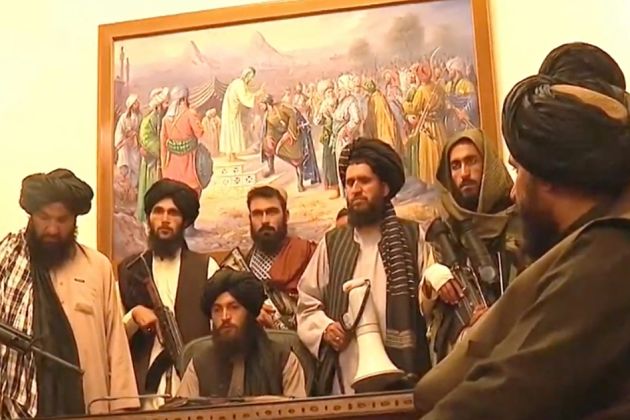So, the revolution that the Taliban movement has been talking about for so long has happened — yesterday, in the presidential palace in Kabul, its members proclaimed the establishment of the Islamic Emirate of Afghanistan (IEA) over the entire country. Much has already been said about the most important political news of recent times, and there will be much more, including on our website. Therefore, let’s try to highlight the main theses.
Now that the Taliban’s victory has led to talk of a possible resurgence of jihadism, it is necessary to understand why they were able to achieve what no other jihadist movement has been able to do. Namely, after a military defeat, they were able to achieve a military victory in a 20-year struggle and regain control over a fairly large country.
There seem to be three main reasons for this success. First, the unique characteristics of Afghanistan as a country were described by the ideologue of the global jihadist movement, Abu Musab al-Suri, who pointed to three factors: 1) the ideal ratio of the length of the territory and its landscape for guerrilla warfare, 2) the extensive and difficult to control border (Afghan-Pakistani) through which they could receive resources, and 3) a resilient, strong, and ascetic people capable of prolonged resistance. We will return to the implications of this later, but in general it can be said that such a combination of factors is difficult to find anywhere else.
Second, the Taliban were able to create and maintain a unified popular resistance movement for two decades precisely because unity based on fundamental Islam in the specific region ensured popular support and strengthened their unity. In virtually all other places, these two principles have been violated by jihadist groups, even as they have achieved their greatest successes by following them.
Third, while achieving success on the battlefield and mobilizing popular support for their guerrilla state, which operated in parallel with the official Kabul government, the Taliban were able to conduct a colossal and effective diplomatic effort. And this was the factor in their victory that many now underestimate — their main military opponents decided that it was more rational to leave Afghanistan to the Taliban than to maintain an inefficient and incompetent government in Kabul. From that moment, i.e. the beginning of negotiations between the US and the Taliban at the Qatar venue, which we have been reporting on for several years, the fate of the former Kabul government was predetermined, and it was only a matter of waiting for the Americans to start withdrawing their troops. It should be noted, however, that the Taliban were able to achieve a favorable outcome for themselves and were not deceived, as has often happened in similar negotiation processes involving Islamic groups.
It is important to understand that although the Islamic Emirate of Afghanistan, which declared victory yesterday, was established in 1996, we are now witnessing the formation of the Islamic Emirate of Afghanistan 2.0, the contours of which began to emerge around 2016, as we wrote then. The change that occurred then, not only in the composition of the IEA leadership, but also in its foreign policy course, which led the Taliban onto tracks of national-state pragmatism and realism, alongside increased military activity, ultimately paved the way for the triumph that the whole world watched breathlessly yesterday.
All this is directly related to the conclusions drawn by Abu Musab al-Suri and his like-minded ideologues of Al-Qaeda, who decided that this country was ideal to play the role of a base in a global military confrontation with the West. This course could not be resisted by the leadership of the old IEA for various reasons and ultimately led to its defeat as a state, and today we can say that it did not prove successful.
The course in which the IEA has been restored as a state is one that aims at building a Sharia-based and national (in the civic sense, not the ethnic) state at the same time, ready to accept the rules of the international legal order. At least this is what is officially proclaimed, and moreover, through intensive contacts with Beijing, Moscow, and Tehran, we see that they are trying to avoid repeating the history of two decades ago, to emerge from the niche of an international terrorist movement, and to be recognized as a full-fledged state in the world and the region.
This path will not be easy, of course, and IA 2.0. will face no less dangers (of various kinds…) than IA 1.0. All we can do is hope and pray to the Almighty that the noble Muslim people of Afghanistan will finally be blessed with security in their country and conditions for its development — both for their own benefit and for the benefit of the entire Islamic Ummah. *- Forbidden in Russia

